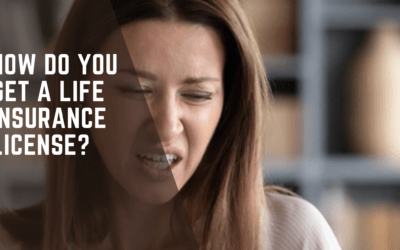So, you’ve got a life insurance policy, and you’re feeling pretty confident that you’ve covered all your bases. But did you know that there are some things even the best life insurance policies don’t cover? Understanding these exclusions is crucial to avoid any surprises when your family needs that payout the most. Let’s dive into what life insurance does not cover, so you can be sure you’ve got all your bases covered!
Table of Contents
- What Is Life Insurance and What Does It Generally Cover?
- Common Exclusions in Life Insurance Policies
- Understanding Suicide Clauses in Life Insurance
- High-Risk Activities and Hazardous Occupations
- Fraud and Misrepresentation
- Acts of War and Terrorism
- Illegal Activities and Criminal Acts
- Comparing Exclusions in Group Term Life Insurance vs. Individual Life Insurance
- Frequently Asked Questions (FAQs)
- Conclusion: Knowing What Your Life Insurance Doesn’t Cover
1. What Is Life Insurance and What Does It Generally Cover?
Let’s start with the basics. Life insurance is a contract between you and an insurance company that pays a lump sum to your beneficiaries upon your death. The idea is to provide financial support to your loved ones when you’re no longer around.
Most life insurance policies, including Group Term Life Insurance provided by employers and individual policies you buy yourself, cover death by natural causes (like illness) or accidental causes (like a car accident). However, some circumstances can prevent the policy from paying out. Let’s explore these situations in more detail.
2. Common Exclusions in Life Insurance Policies
Life insurance exclusions are specific situations in which the insurer can deny a death benefit payout. While each life insurance policy is different, here are the most common exclusions:
| Exclusion | Description |
|---|---|
| Suicide (within a certain period) | Many policies have a clause that excludes coverage for suicide within the first two years. |
| High-Risk Activities | Deaths resulting from risky activities like skydiving, scuba diving, or racing are often excluded. |
| Fraud or Misrepresentation | Failing to disclose important information, like smoking habits or health issues, can void the policy. |
| War or Acts of Terrorism | Deaths resulting from acts of war or terrorism are often not covered. |
| Illegal Activities | Deaths that occur while committing a crime or engaging in illegal activities are usually excluded. |
3. Understanding Suicide Clauses in Life Insurance
Many life insurance policies contain a suicide clause that typically lasts for the first two years after the policy is purchased. If the policyholder dies by suicide within this period, the insurer will not pay out the death benefit. Instead, they may only return the premiums paid.
After the initial period, the policy will generally cover death by suicide. This exclusion is designed to prevent people from taking out policies with the intention of committing suicide shortly thereafter.
Key takeaway: Always read your policy’s fine print to understand the duration of any suicide exclusion clause.
4. High-Risk Activities and Hazardous Occupations
If you’re a thrill-seeker who loves skydiving, scuba diving, or bungee jumping, beware—your life insurance policy may not cover deaths resulting from these activities. Many policies exclude coverage for deaths that occur while participating in dangerous hobbies or sports.
Similarly, some life insurance policies exclude deaths related to hazardous occupations, such as:
| Hazardous Occupations | Examples |
|---|---|
| Mining | Due to high risks of accidents and exposure to hazardous materials. |
| Aviation (non-commercial) | Pilots of private or small aircraft are often considered high-risk. |
| Construction and Roofing | Higher risk of falls, accidents, and exposure to dangerous tools. |
If you work in a hazardous occupation or engage in risky hobbies, it’s important to disclose this information when applying for life insurance. Some policies may allow you to add a rider to cover these risks, though it may increase your premium.
5. Fraud and Misrepresentation
This one is straightforward: honesty is the best policy when it comes to insurance. If you lie or omit information on your application—whether it’s about your age, health, smoking habits, or occupation—you risk having your policy voided due to fraud or misrepresentation.
For example, if you claim to be a non-smoker but your medical records or death certificate indicate otherwise, the insurer can deny the claim.
Key takeaway: Be upfront and truthful when filling out your life insurance policy application to avoid any future complications for your beneficiaries.
6. Acts of War and Terrorism
Most life insurance policies will not cover deaths that result from acts of war or terrorism. This exclusion often applies to both military personnel and civilians.
- Military Personnel: If you are in active military service, many standard policies exclude deaths due to war-related activities. Military personnel often need specialized policies that address these risks.
- Civilians: If a civilian dies as a direct result of war or terrorism, the insurance company might deny the claim under this exclusion.
7. Illegal Activities and Criminal Acts
If you die while committing a crime or participating in illegal activities, your life insurance policy may not pay out. This exclusion can apply to various situations, such as:
- Driving Under the Influence (DUI): If you die in a car accident while intoxicated, the insurer may deny the death benefit.
- Drug Overdose: Deaths caused by illegal drug use or overdose may not be covered, depending on the policy terms.
- Participation in a Crime: If you are committing a crime, such as a robbery, and are killed, your policy will likely not pay out.
8. Comparing Exclusions in Group Term Life Insurance vs. Individual Life Insurance
When it comes to exclusions, there can be some differences between Group Term Life Insurance provided by employers and individual life insurance policies.
| Feature | Group Term Life Insurance | Individual Life Insurance |
|---|---|---|
| Suicide Clause | Typically included, often with a 2-year limit. | Also included, duration can vary based on the policy. |
| High-Risk Activities | Often excluded, but coverage can vary by employer. | Usually excluded; can sometimes be covered by a rider. |
| War or Acts of Terrorism | Common exclusion for both employee and employer coverage. | Common exclusion; specialized policies may offer coverage. |
| Fraud and Misrepresentation | Strictly enforced if inaccurate information is provided. | Also strictly enforced, and can result in policy cancellation. |
| Illegal Activities | Typically excluded. | Always excluded. |
9. Frequently Asked Questions (FAQs)
Q: Does life insurance cover deaths from natural disasters?
Answer: Yes, most life insurance policies will cover deaths caused by natural disasters like earthquakes, floods, or hurricanes, unless there is a specific exclusion for such events (which is rare).
Q: Can my life insurance be canceled if I engage in a dangerous hobby after purchasing the policy?
Answer: It depends on the policy. Some policies may have clauses that exclude coverage for deaths caused by dangerous activities, even if you take up the hobby after the policy is purchased. Always review the terms carefully.
Q: What happens if I lie on my life insurance application?
Answer: If the insurer finds out you lied or omitted information, they could cancel the policy, deny a claim, or adjust the benefits. This is why it’s crucial to provide accurate and honest information.
10. Conclusion: Knowing What Your Life Insurance Doesn’t Cover
Understanding what a life insurance policy does not cover is just as important as knowing what it does. Common exclusions such as suicide (within a certain period), high-risk activities, fraud, and illegal activities can prevent a death benefit payout, leaving your loved ones without the support you intended.
To ensure your insurance benefits align with your expectations, carefully read your policy documents and discuss any concerns with your insurance provider. By knowing the exclusions, you can make informed decisions about additional coverage or riders to fill any gaps in your protection.
Remember, when it comes to life insurance, knowledge is power. So, take the time to understand your policy fully—you (and your beneficiaries) will be glad you did.

























